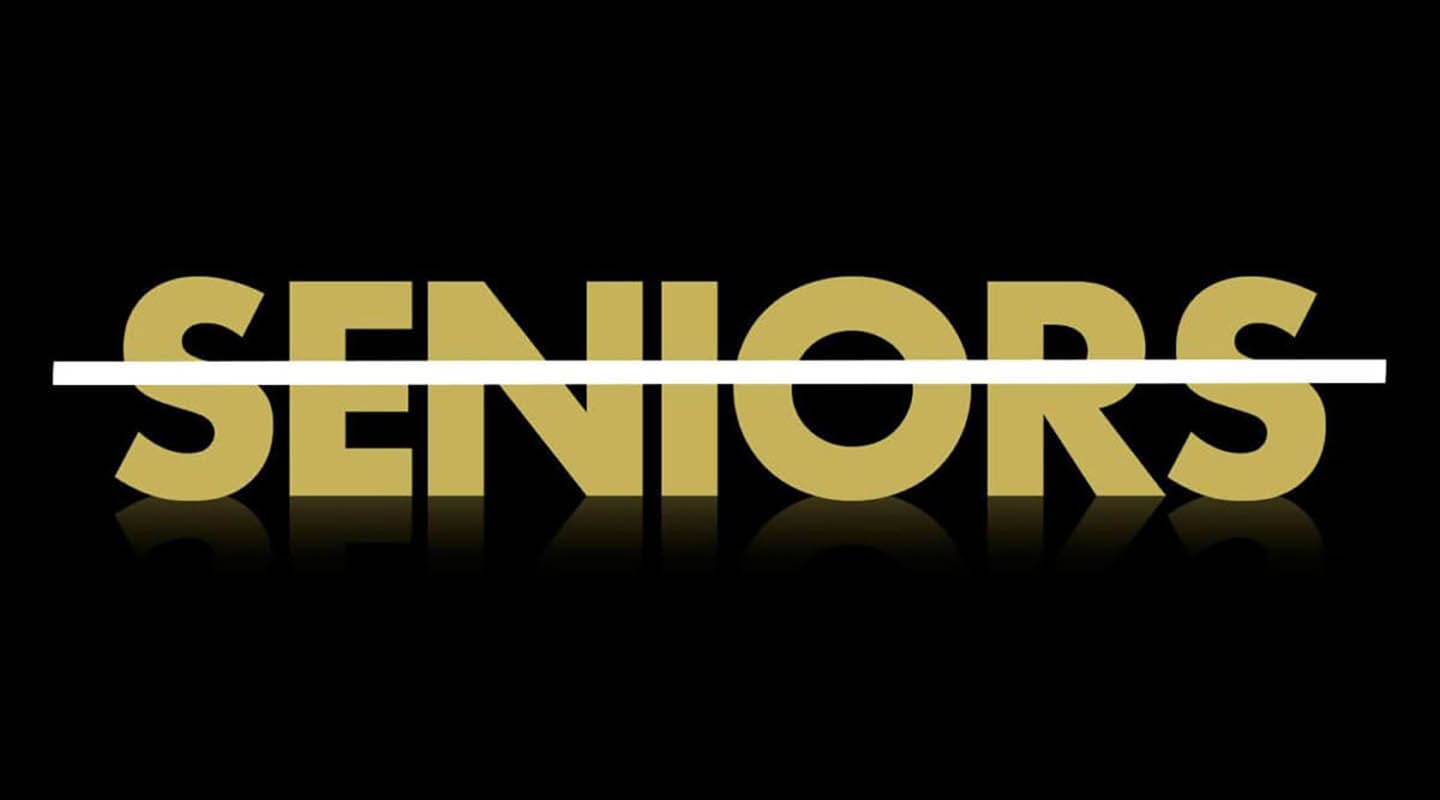SHARE
Medicare Marketers: Stop using the S-Word.
The only time the word Senior has ever had any cachet was when we were all freshmen in high school. Or maybe when we coveted a promotion—as in Senior Management. But for those 65 and older, and especially those aging into Medicare, you might as well address them as old fogey or dinosaur, because that’s what the target audience hears when they’re referred to as Seniors.
It’s a well-documented fact that they HATE the term Senior. So it’s fascinating that it’s still in the Medicare marketing lexicon. When you use the S-word, it quickly communicates to this audience that you don’t see them as they see themselves and their feelings don’t matter.
As a Medicare marketer, I realize that Senior is an easy shorthand categorization. But in this age of segmentation and the laser-focus targeting of mobile, it’s also woefully inadequate.
The S-Word is insidious.
It’s everywhere. It’s in direct mail: “We have great benefits for Seniors!” It’s bandied about at Medicare marketing conferences. It’s found throughout Medicare enrollment websites. When designers search for stock photos, they often type in “Seniors being active.” No wonder so many Medicare marketing materials look like marketing for assisted living facilities.
What should we call them?
Excellent question, glad you asked. In my first years of marketing Medicare, I cheekily referred to this target as Medicarians—as if they were some exotic Star Trek civilization. But I would never use that term in marketing because it’s not specific enough. Marketing should address them as individuals. And frankly, no age group likes to be all lumped together. (I’ll bet Millennials are fed up with that term because it’s often used to negatively stereotype them.) The word Senior just conjures up sepia images of someone rocking away in a rocking chair, petting an old, moldy cat and worrying that their retirement funds will run out before they do. Overall, it’s better to connect with this audience around their attitudes, activities and values instead of a stereotype or outdated label.
Those currently aging into Medicare are healthier, more active and more digitally engaged than ever before.
87% of this target with college degrees go online for emails and to search for information. 84.9% of boomers said they use or belong to Facebook. And generations after them will be even more digitally savvy.
They also view themselves as 10-15 years younger. (Don’t we all?) So if you’re marketing to Age-Ins and depicting people in their 80s, that’s a huge disconnect right there.
Take the S-Word challenge.
Take one of your current marketing materials and change out the word Senior for anything reasonable or targeted, like:
- Medicare-eligible
- People 65 and older
- You
You’ll quickly see that your communication still conveys what you need, respectfully, without the risk of alienating your audience. So cut your audience some slack. Respect their POV. And don’t use the S-word.

About Boni Peluso
Boni is a Medicare specialist with over 9 years of experience marketing to Medicarians. As an Associate Creative Director, she leads the Medicare creative development team at KERN Health.
Medicare Marketers: Stop using the S-Word.
SHARE
The only time the word Senior has ever had any cachet was when we were all freshmen in high school. Or maybe when we coveted a promotion—as in Senior Management. But for those 65 and older, and especially those aging into Medicare, you might as well address them as old fogey or dinosaur, because that’s what the target audience hears when they’re referred to as Seniors.
It’s a well-documented fact that they HATE the term Senior. So it’s fascinating that it’s still in the Medicare marketing lexicon. When you use the S-word, it quickly communicates to this audience that you don’t see them as they see themselves and their feelings don’t matter.
As a Medicare marketer, I realize that Senior is an easy shorthand categorization. But in this age of segmentation and the laser-focus targeting of mobile, it’s also woefully inadequate.
The S-Word is insidious.
It’s everywhere. It’s in direct mail: “We have great benefits for Seniors!” It’s bandied about at Medicare marketing conferences. It’s found throughout Medicare enrollment websites. When designers search for stock photos, they often type in “Seniors being active.” No wonder so many Medicare marketing materials look like marketing for assisted living facilities.
What should we call them?
Excellent question, glad you asked. In my first years of marketing Medicare, I cheekily referred to this target as Medicarians—as if they were some exotic Star Trek civilization. But I would never use that term in marketing because it’s not specific enough. Marketing should address them as individuals. And frankly, no age group likes to be all lumped together. (I’ll bet Millennials are fed up with that term because it’s often used to negatively stereotype them.) The word Senior just conjures up sepia images of someone rocking away in a rocking chair, petting an old, moldy cat and worrying that their retirement funds will run out before they do. Overall, it’s better to connect with this audience around their attitudes, activities and values instead of a stereotype or outdated label.
Those currently aging into Medicare are healthier, more active and more digitally engaged than ever before.
87% of this target with college degrees go online for emails and to search for information. 84.9% of boomers said they use or belong to Facebook. And generations after them will be even more digitally savvy.
They also view themselves as 10-15 years younger. (Don’t we all?) So if you’re marketing to Age-Ins and depicting people in their 80s, that’s a huge disconnect right there.
Take the S-Word challenge.
Take one of your current marketing materials and change out the word Senior for anything reasonable or targeted, like:
- Medicare-eligible
- People 65 and older
- You
You’ll quickly see that your communication still conveys what you need, respectfully, without the risk of alienating your audience. So cut your audience some slack. Respect their POV. And don’t use the S-word.

About Boni Peluso
Boni is a Medicare specialist with over 9 years of experience marketing to Medicarians. As an Associate Creative Director, she leads the Medicare creative development team at KERN Health.
Medicare Marketers: Stop using the S-Word.
SHARE
The only time the word Senior has ever had any cachet was when we were all freshmen in high school. Or maybe when we coveted a promotion—as in Senior Management. But for those 65 and older, and especially those aging into Medicare, you might as well address them as old fogey or dinosaur, because that’s what the target audience hears when they’re referred to as Seniors.
It’s a well-documented fact that they HATE the term Senior. So it’s fascinating that it’s still in the Medicare marketing lexicon. When you use the S-word, it quickly communicates to this audience that you don’t see them as they see themselves and their feelings don’t matter.
As a Medicare marketer, I realize that Senior is an easy shorthand categorization. But in this age of segmentation and the laser-focus targeting of mobile, it’s also woefully inadequate.
The S-Word is insidious.
It’s everywhere. It’s in direct mail: “We have great benefits for Seniors!” It’s bandied about at Medicare marketing conferences. It’s found throughout Medicare enrollment websites. When designers search for stock photos, they often type in “Seniors being active.” No wonder so many Medicare marketing materials look like marketing for assisted living facilities.
What should we call them?
Excellent question, glad you asked. In my first years of marketing Medicare, I cheekily referred to this target as Medicarians—as if they were some exotic Star Trek civilization. But I would never use that term in marketing because it’s not specific enough. Marketing should address them as individuals. And frankly, no age group likes to be all lumped together. (I’ll bet Millennials are fed up with that term because it’s often used to negatively stereotype them.) The word Senior just conjures up sepia images of someone rocking away in a rocking chair, petting an old, moldy cat and worrying that their retirement funds will run out before they do. Overall, it’s better to connect with this audience around their attitudes, activities and values instead of a stereotype or outdated label.
Those currently aging into Medicare are healthier, more active and more digitally engaged than ever before.
87% of this target with college degrees go online for emails and to search for information. 84.9% of boomers said they use or belong to Facebook. And generations after them will be even more digitally savvy.
They also view themselves as 10-15 years younger. (Don’t we all?) So if you’re marketing to Age-Ins and depicting people in their 80s, that’s a huge disconnect right there.
Take the S-Word challenge.
Take one of your current marketing materials and change out the word Senior for anything reasonable or targeted, like:
- Medicare-eligible
- People 65 and older
- You
You’ll quickly see that your communication still conveys what you need, respectfully, without the risk of alienating your audience. So cut your audience some slack. Respect their POV. And don’t use the S-word.

About Boni Peluso
Boni is a Medicare specialist with over 9 years of experience marketing to Medicarians. As an Associate Creative Director, she leads the Medicare creative development team at KERN Health.
